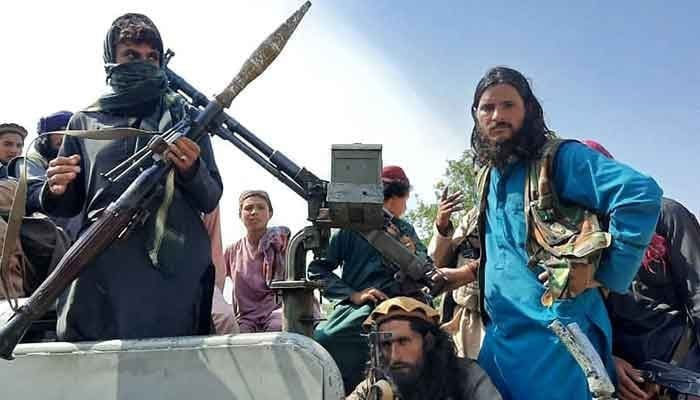Terror is back
Terror is back in the country, and in the first three months of 2024 alone, Pakistan saw 245 incidents of terror attacks and counter-terror operations
Pakistan is no stranger to terrorism. On Saturday, a DSP officer and his gunmen embraced martyrdom when their vehicle was attacked in Lakki Marwat, Khyber Pakhtunkhwa. A week before that, at least five Chinese nationals were killed in a suicide bomb blast when they were on their way to the Dasu Dam in KP. Ever since its creation, it has seen long periods of violence involving both internal and external forces. The situation turned worse after the 2001 Twin Towers attack in the US when the resultant ‘war on terror’ led to the deaths of 80,000 people in Pakistan. By the late 2010s, the country’s security forces, following multiple operations against terrorists, had managed to bring the situation under control. But the calm the country achieved after great sacrifices by both civilians and troops has been disturbed once again. Terror is back in the country, and in the first three months of 2024 alone, Pakistan saw 245 incidents of terror attacks and counter-terror operations, per a report by the Centre for Research and Security Studies (CRSS). These incidents have led to a total of 432 fatalities and 370 injuries. The report also suggests that militant groups have only claimed responsibility for 20 per cent of the total attacks. Other shocking revelations include the emergence of a new militant group – the Jabhat Ansar al-Mahdi Khorasan (JAMK). Balochistan and KP – two provinces bordering Afghanistan – have been worst affected by this new wave of terrorism. And while Sindh has seen an uptick in violence – over 40 per cent – the number of fatalities in the region has been low.
These worrying statistics once again remind us of the multifaceted challenges ahead. Militant groups are armed with sophisticated and hi-tech weapons – some of which were left by American soldiers during their hasty withdrawals. Also, years of war, resulting in vast destruction in remote areas of the country, have created a generation of frustrated and dejected people who pick up arms to protest against the government’s apathy towards their causes. Several reports have suggested that militant groups use propaganda campaigns on social media to lure young recruits, ensuring that they have enough people to keep their presence intact. The government has repeatedly stated that it will take stern action against extremist elements responsible for spreading violence and fear in the country. It has also warned Afghanistan officials, over and over, of the use of Afghan soil for terror attacks against Pakistan. It is time the interim setup in the neighbouring country heeded Pakistan’s concerns and took action against groups responsible for spreading terror across the border.
The Pakistani government should do whatever it takes to bring peace back to the country. For decades, the people of the country have silently suffered from growing extremism in the country. Violence and destruction caused in remote places in KP and Balochistan have expelled the area’s residents and forced them to find meagre jobs either in urban cities or overseas. Our people need some stability in their lives, and it is the government’s responsibility to provide a safe living environment to all its citizens. The two provinces that are only visited by mainstream politicians during the election year need the undivided attention of all authorities who should be on the same page to put an end to this menace. Only a safe Pakistan can transform into an economically strong Pakistan.
-
 ChatGPT Caricature Prompts Are Going Viral. Here’s List You Must Try
ChatGPT Caricature Prompts Are Going Viral. Here’s List You Must Try -
 James Pearce Jr. Arrested In Florida After Alleged Domestic Dispute, Falcons Respond
James Pearce Jr. Arrested In Florida After Alleged Domestic Dispute, Falcons Respond -
 Cavaliers Vs Kings: James Harden Shines Late In Cleveland Debut Win
Cavaliers Vs Kings: James Harden Shines Late In Cleveland Debut Win -
 2026 Winter Olympics Snowboarding: Su Yiming Wins Bronze And Completes Medal Set
2026 Winter Olympics Snowboarding: Su Yiming Wins Bronze And Completes Medal Set -
 Trump Hosts Honduran President Nasry Asfura At Mar-a-Lago To Discuss Trade, Security
Trump Hosts Honduran President Nasry Asfura At Mar-a-Lago To Discuss Trade, Security -
 Cuba-Canada Travel Advisory Raises Concerns As Visitor Numbers Decline
Cuba-Canada Travel Advisory Raises Concerns As Visitor Numbers Decline -
 Anthropic Buys 'Super Bowl' Ads To Slam OpenAI’s ChatGPT Ad Strategy
Anthropic Buys 'Super Bowl' Ads To Slam OpenAI’s ChatGPT Ad Strategy -
 Prevent Cancer With These Simple Lifestyle Changes
Prevent Cancer With These Simple Lifestyle Changes -
 Air Canada Flight Diverted St John's With 368 Passengers After Onboard Incident
Air Canada Flight Diverted St John's With 368 Passengers After Onboard Incident -
 Experts Reveal Keto Diet As Key To Treating Depression
Experts Reveal Keto Diet As Key To Treating Depression -
 Inter Miami Vs Barcelona SC Recap As Messi Shines With Goal And Assist
Inter Miami Vs Barcelona SC Recap As Messi Shines With Goal And Assist -
 David Beckham Pays Tribute To Estranged Son Brooklyn Amid Ongoing Family Rift
David Beckham Pays Tribute To Estranged Son Brooklyn Amid Ongoing Family Rift -
 Jailton Almeida Speaks Out After UFC Controversy And Short Notice Fight Booking
Jailton Almeida Speaks Out After UFC Controversy And Short Notice Fight Booking -
 Extreme Cold Warning Issued As Blizzard Hits Southern Ontario Including Toronto
Extreme Cold Warning Issued As Blizzard Hits Southern Ontario Including Toronto -
 Lana Del Rey Announces New Single Co-written With Husband Jeremy Dufrene
Lana Del Rey Announces New Single Co-written With Husband Jeremy Dufrene -
 Ukraine-Russia Talks Heat Up As Zelenskyy Warns Of US Pressure Before Elections
Ukraine-Russia Talks Heat Up As Zelenskyy Warns Of US Pressure Before Elections




